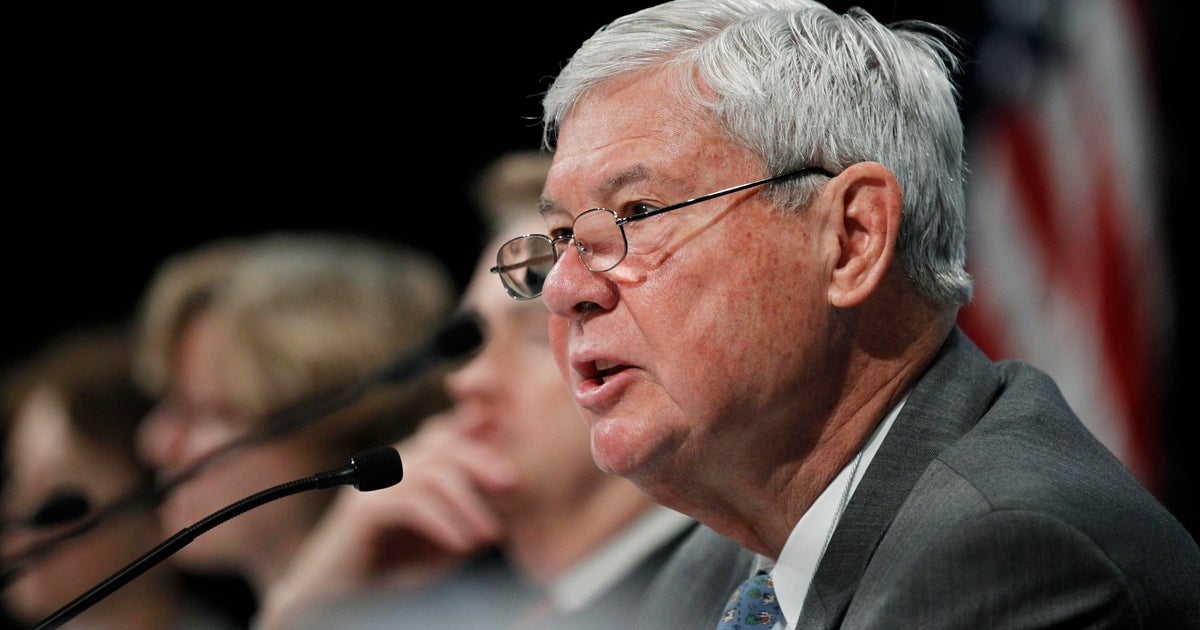CBS Miami Investigates: Who really benefits from Daytona 500 tax break?
MIAMI - In May, Governor Ron DeSantis went to a Sam's Club in Ocala to sign a package of tax cuts totaling $1.1 billion.
"This is actually the largest tax relief in the history of Florida," DeSantis said, surrounded by children and families.
"You are going to see breaks for really critical needs like gas, diapers, disaster supplies, tools for skilled trades, recreational activities, you name it."
Many of the tax cuts were temporary or limited, designed to stay until he won re-election in November.
DeSantis stressed how important each tax break would be for the everyday lives of Floridians.
"Families are going to be able to save on things that really matter for them," he said.
Tucked inside the 89-page bill DeSantis signed, was a supposed tax break for consumers that some economists believe will actually funnel millions of dollars to NASCAR and the Daytona 500.
The bill made tickets to the Daytona 500 exempt from the state's six percent sales tax.
And unlike many of the tax breaks – like the gas tax relief that went away after one month – the sales tax exemption for the Daytona 500 is permanent.
"So this is just completely wrong from basic economics 101," said Victor Matheson, a professor at Holy Cross College, who specializes in sports economics.
He said the issue of removing the sales tax from an event has been studied extensively by economists.
"If a sales tax is eliminated, part of the reduction of that sales tax being eliminated does go to the consumer," Matheson said.
"But a bunch of it goes to the track itself, which now feels free to raise prices in the absence of that tax."
Matheson dismissed the notion this move was being done for the benefit of consumers.
"Not only is it a fallacy, we have every reason to believe that the vast majority of the of the tax relief actually goes to the Daytona track," he said.
"And this is a track that's owned by NASCAR, which is owned by the [France] family who are multi-billionaires. So basically, this is a multimillion-dollar tax subsidy. Basically, it's corporate welfare for billionaires."
It is not yet clear how this year's ticket prices – which can run into the hundreds of dollars – were affected by the bill, if prices rose higher than they would have, or if consumers actually saw a break this year.
NASCAR did not respond to emails and calls seeking comment.
According to the state's own numbers, removing the sales tax from the Daytona 500 will cost the state $6 million a year.
The Daytona 500 wasn't the only race included – the bill had an exemption for Formula One racing, as well as the sale of World Cup tickets.
So, how did the Daytona 500 exemption make it into the bill.
CBS Miami has obtained an email showing it was a lobbyist for NASCAR that wrote the amendment.
On February 21, a day after last year's Daytona 500, Luke Strominger – an aide for South Florida State Senator Anna Maria Rodriguez, wrote an email to Robert Babin, the staff director for the Senate's powerful Tax and Finance committee.
"David Browning wants to have this included in the tax package." Attached was this document with the wording for Daytona 500 tax exemption that was inserted into the bill at the last minute.
David Browning is one of eight lobbyists in Tallahassee for NASCAR. Reached by phone, Browning declined to comment for this story.
"Well, of course, there's no surprise that they're the ones who stuck this in because reducing the tax on the Daytona 500 doesn't benefit anyone except a little bit for the handful of people who go to this event," Matheson said.
"And of course, the owner of the event itself. The vast majority of those benefits, again, go to the people who need at least.
Babin, the policy director for the Tax and Finance committee, argued it is customary for suggestions and possible amendments to tax bills be sent to him, saying: "We are sort of the collection point for all of the ideas."
Neither Senator Ana Maria Rodriguez nor her aide responded to requests for comment.
A spokeswoman for the Florida Senate issued a statement that read in part: "To craft this legislation, dozens of ideas brought forward by Senators, constituents, businesses and advocacy groups were compiled over a number of months. Each idea was reviewed and vetted as part of the committee process and ultimately, a final tax relief package was developed during the budget conference between the House and Senate."
NASCAR and its related groups have been major campaign donors in Florida for DeSantis and the Republican Party.
DeSantis has received more than $70,000 from NASCAR and its related businesses.
The Republican Party of Florida - more than $120,000 in recent years.
Matheson said most of these sales tax exemptions for sporting events make little sense.
"Every restaurant in the state, every gift shop, every mom-and-pop grocery store, they all have to pay sales tax when they sell goods and services," Matheson said. "But apparently, when you're a multibillion-dollar corporation that has a high-paid lobbyist and has the ear of important state legislators or the governor, then I guess you don't."




